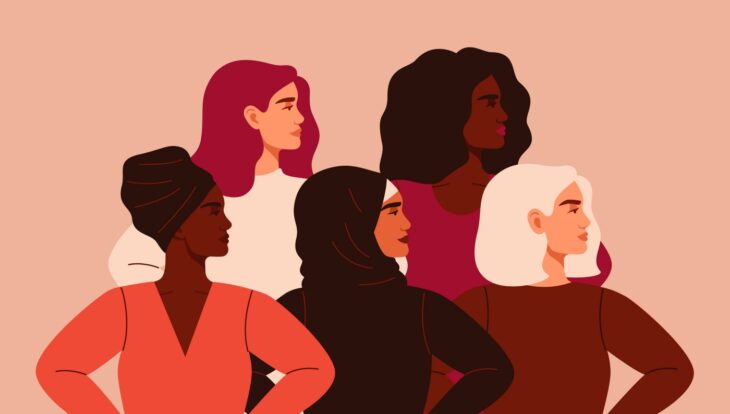Women’s Day is March 8th, 2024 and with its approach, we must look at the importance of Women’s empowerment and its ability to better society as a whole. According to Cultured Focus Magazine, although in many countries women’s rights have made significant strides forward, there are still millions of women around the world who are facing discrimination and persecution for the simple act of being born female.
Women’s empowerment is beginning to gain momentum, although it isn’t anywhere close to where it needs to be. Many people don’t have the knowledge and education to understand what it means to empower girls and women and how it directly impacts the economy and prosperity of their community and nation as a whole. Women’s empowerment isn’t only about letting women go braless (although we’re all for it); it’s about allowing them to receive education, freedom, and equal treatment as their male counterparts in their private lives and the workplace.
Contents
What Exactly Does Empowering Women Mean?

Source: freepressjournal.in
According to the European Institute for Gender Equality (EIGE),”Women’s empowerment has five components: women’s sense of self-worth; their right to have and to determine choices; their right to have access to opportunities and resources; their right to have the power to control their own lives, both within and outside the home; and their ability to influence the direction of social change to create more just social and economic order, nationally and internationally.”
In this context, the importance of equal education, training, and increased access to and control over their resources is critical for women. Tangible actions that transform the structures and institutions that reinforce and perpetuate gender discrimination and inequality are important tools for empowering women and girls to claim their rights.
Empowerment through Progress
Women’s empowerment won’t happen overnight; it takes steady progress to achieve impactful change. So what does progress look like? Women and girls receiving a quality education, work opportunities, healthcare access, and political representation is an excellent start. Achieving progress in these areas is crucial to continued development and economic progression for every country globally.
Studies have shown that when communities take steps to improve women’s decision-making capabilities, especially regarding sexuality and reproduction, it has a long-lasting impact on the population’s development. In short, communities flourish when women are empowered and educated! Having the full participation of women and men in a society is the only way to achieve the necessary economic growth that encourages civilized worldwide expansion.
The Long Road Ahead

Source: globalgiving.org
Currently, there are many areas worldwide where women receive less education and have highly-restricted influence not only over their own life but in the community around them. Approximately there are 660 million illiterate women and 75 million girls not enrolled in primary school worldwide. As we seek to empower women, these numbers will drop, creating more opportunities for a better future for hundreds of millions of women.
How Women’s Empowerment Betters Society
There are many ways empowering women benefits society, including those listed below.
Encourage Independence
When women know they can do anything, they take more risks in the workforce and with education. Higher educated women make more money, boosting the economy and decreasing the number of poverty-stricken neighborhoods.
Reduced Domestic Violence

Source: domesticshelters.org
Empowered women know their value, which helps them stand up to domestic violence. It also encourages men to see women as people, not only objects, lowering their chances of becoming an aggressor.
Decreased Health Crises’
Higher educated girls and women are less likely to experience teen pregnancy, are healthier, marry later, and have fewer children. They also live longer, happier lives! Educated women are more likely to seek medical help for their families, reducing the child death rate by 50%.
Boost the Economy
When programs provide women with income-generating abilities, they return $7 for every $1 spent. Closing the gender credit gap can increase national GDP by 12% by 2030, and paying women equally to men would increase US GDP by 9%, Euro GDP by 13%, and Japanese GDP by 16%.
Women also statistically invest more in their families, creating an upcoming generation equipped to be the first in history to break free from the cycle of extreme poverty! Empowering women is vital and exciting because it also means you’re empowering families. Women are intrinsically future-focused; they invest in their children and in people and projects that have lasting value. When we empower women, we unlock a generational legacy that will change the world!
International Women’s Day (IWD), day (March 8) has been sponsored by the United Nations (UN) since 1975. The holiday is meant to honor the achievements of women and promote women’s rights.
In the United States, typically on March 8th itself, capital cities host rallies, conferences, and business events bringing together conversation and thought leaders around the topic, according to Education First.
In Europe, in countries such as Italy, women are traditionally given bunches of small yellow mimosas; the chosen symbol of International Women’s Day in this country. Also seen to symbolize female strength, it’s common for women to pass springs of mimosas to each other as a sign of female solidarity.
In South America, since the 1900s Argentineans have marked International Women’s Day by giving presents to the women in their lives. But, in recent years, citizens have increasingly taken to the streets to demonstrate against violence, pay inequity, equal representation in the arts, and other social change.
Women’s History Month

Source: medium.com
The month of March is used to commemorate National Women’s History Month traces its roots to March 8, 1857, when women from various New York City factories staged a protest over poor working conditions, according to the United States Census Bureau. The Census Bureau indicates “The first Women’s Day celebration in the United States was in 1909, also in New York City. More than seven decades later, Congress in 1981 established National Women’s History Week to be commemorated annually the second week of March. In 1987, Congress expanded the week to a month and every year since has passed a resolution (and the president has issued a proclamation) designating March Women’s History Month.”
As we celebrate Women’s History Month 2024, let us all reflect upon advances women have made over the last decade. Women have made progress in the areas of wage earnings, education, and health but there is much more work ahead. With the support of their entire communities and the larger society as a whole, women’s empowerment will lead to greater economic growth and create more stable societies.
